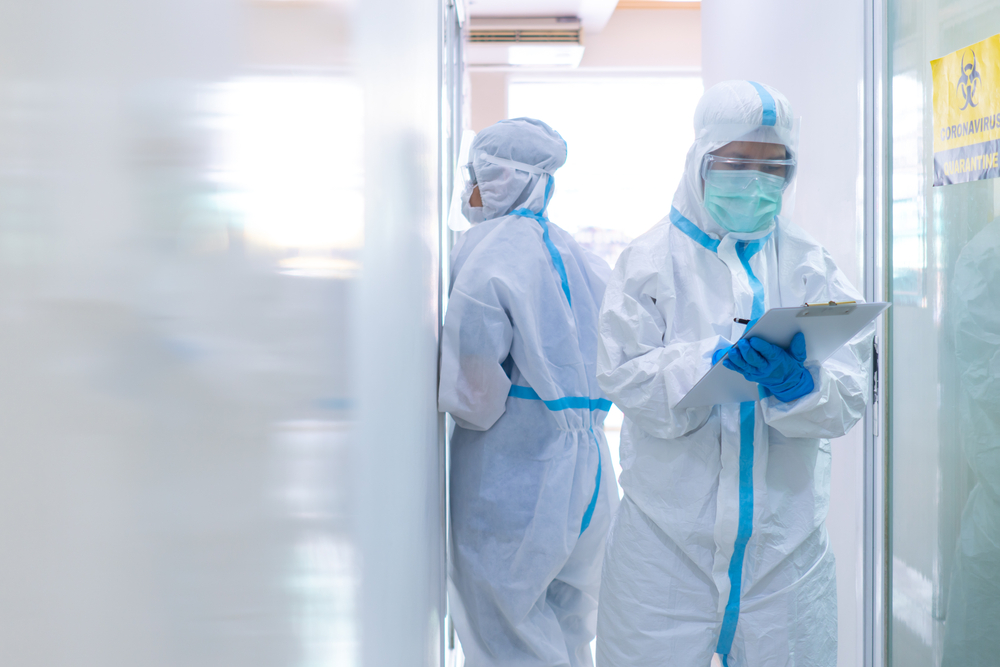The lack of Personal Protective Equipment (PPE) has been a continuing issue for healthcare workers in the U.S. since the start of the COVID-19 crisis. While hospitals struggle to obtain supplies amid severe shortages, workers have been fired for going public with concerns and lawsuits have been filed against hospitals. Whether healthcare facilities will be found liable remains to be seen because of the unique circumstances resulting from COVID-19 as well as the difficultly of establishing liability in any case arising out of a failure to provide PPE.
Personal protective equipment, including N95 masks, powered air-purifying respirators (PAPR), surgical masks, and face shields, are essential to the safety of healthcare workers. PPE shortages during COVID-19 have resulted in restrictions and rationing leaving physicians, nurses, medics, respiratory therapists, and other healthcare workers unprotected during high-risk patient encounters. In some cases, this has been exacerbated by policies preventing healthcare workers from using homemade PPE even when no other masks were available, and other policies mandating prolonged reuse of potentially contaminated gear. Over the last few months, various organizations and agencies have provided information and guidelines to healthcare facilities and providers regarding optimizing and reuse of their supply of PPE, but arguably, there are still risks to workers.
Hospitals have a legal obligation to provide a safe working environment, but the issue is complicated because PPE was not available to be given to workers. However, plaintiffs will likely question whether the facility failed to adequately prepare for a known and impending medical crisis. Defendants will argue that it was impossible to proactively predict the impact of the pandemic, and once the extent was known, it led to an immediate collapse of standard supply chains. Both sides will closely examine what the healthcare facility did to prepare for COVID-19 cases, its PPE supply chain, and its policies and training of staff regarding the use of PPE. In this respect, experts in the areas of Hospital Administration and Hospital Procurement can provide essential testimony regarding the hospital’s duty of care and compliance with best practices considering the COVID-19 situation.
Causation will be a significant issue as it may not be clear how transmission occurred, whether it could have been prevented if PPE was available, and whether the plaintiff’s actions contributed to his or her infection. Emergency Medicine Physicians, Emergency Medicine Nurses, Respiratory Therapists, Paramedics, and Patient Care Technicians are among the most likely to be at risk of infection and top tier expert witnesses in those areas can testify regarding these causation issues.
Infectious Disease Physicians and Epidemiologists may also be needed to provide necessary testimony regarding transmission of the virus, delayed or improper treatment of infections, complications from the treatment, and how treatment affects outcome.
Elite Medical Experts supports both plaintiff and defense in exploring liability, and provides nationally recognized experts in Hospital Administration, Infectious Disease, and other areas to assist with COVID-19 claims against healthcare facilities. Please contact the Case Strategy Team at Elite Medical Experts to discuss any facet of COVID-19 claims.


2 Responses
aren’t most nursesand patient care technicians employees of the hospitals and therefoe covered by workers compensation and not entitled to sue their hospital employers??
Thank you for your thoughtful comment. From breach to causation, COVID-19 litigation will be inherently challenging for employees, and many claims will be barred by Workers’ Compensation. Nonetheless, workers have the right to a safe workplace, and there may be situations in which a worker alleges harm from a foreseeably unsafe workplace that the employer failed to reasonably remedy. Such allegations must be viewed through a narrow lens focusing on the exact COVID-19 data and resources known at the time, and that will be precarious since information and resources changed daily. We’ll learn more as the first lawsuits emerge, but this will be a dynamic area of law for both sides of the bar.